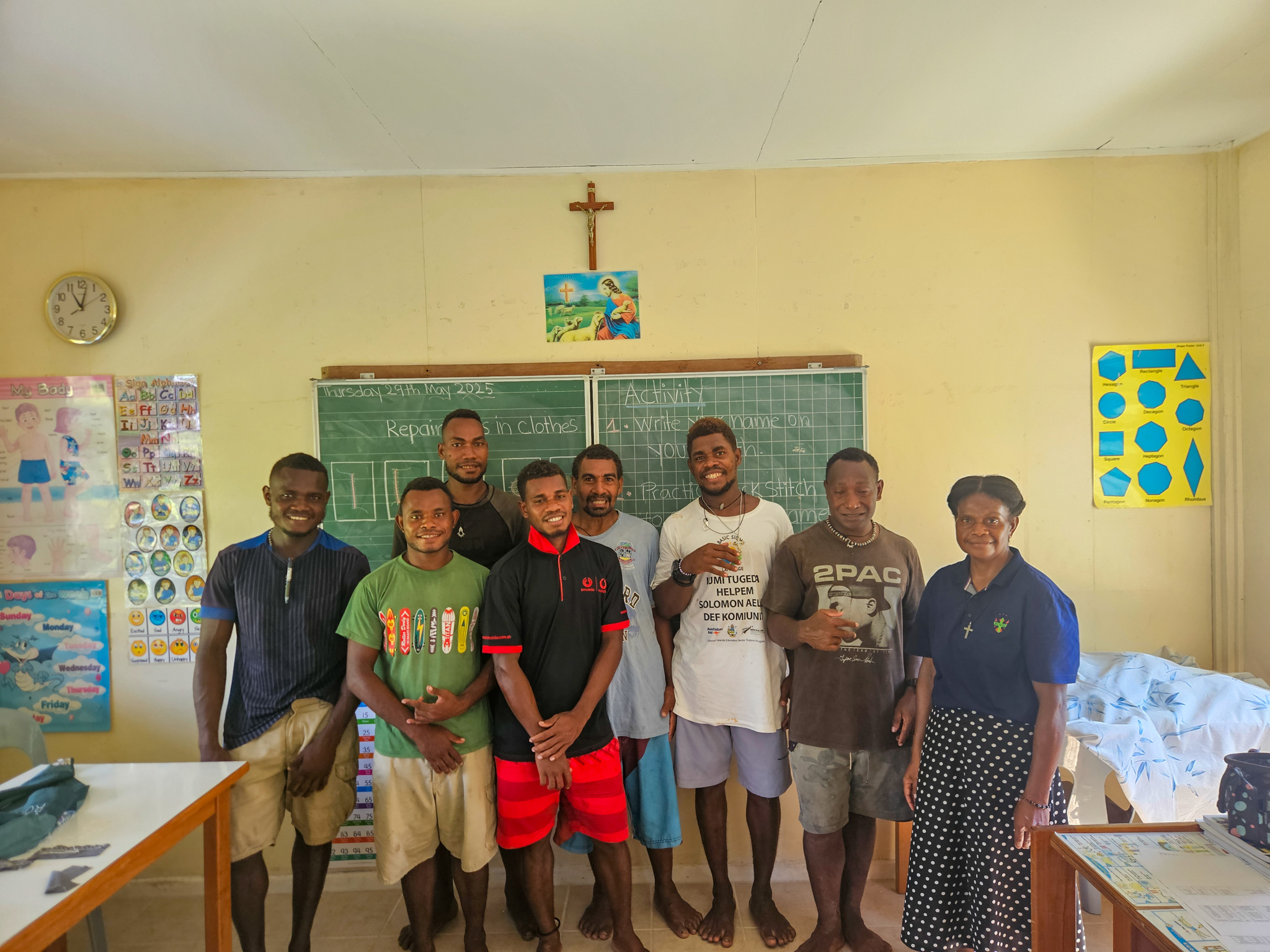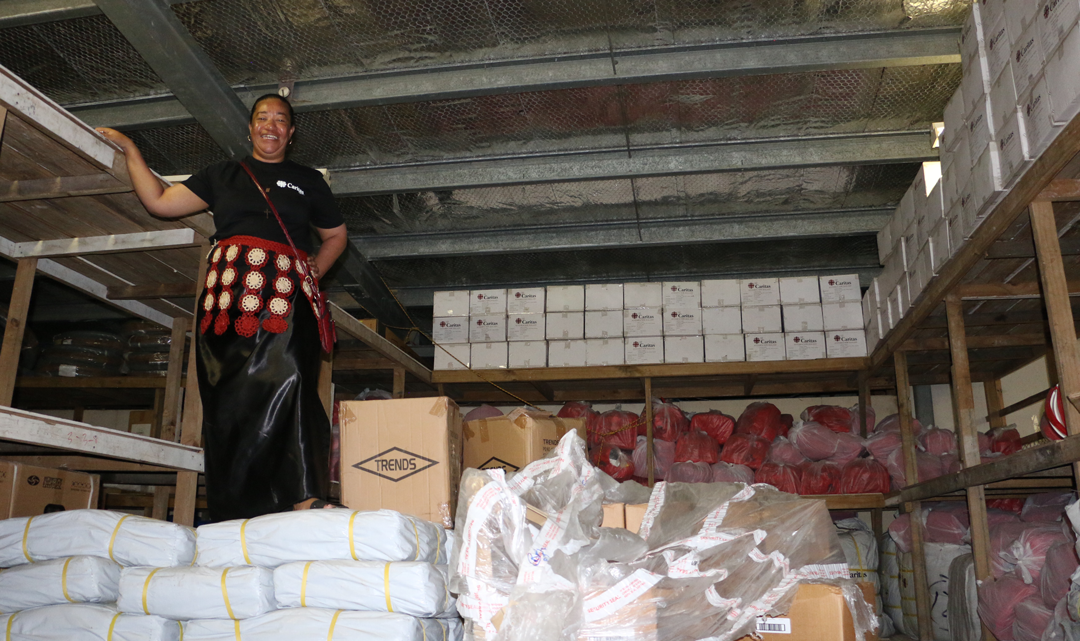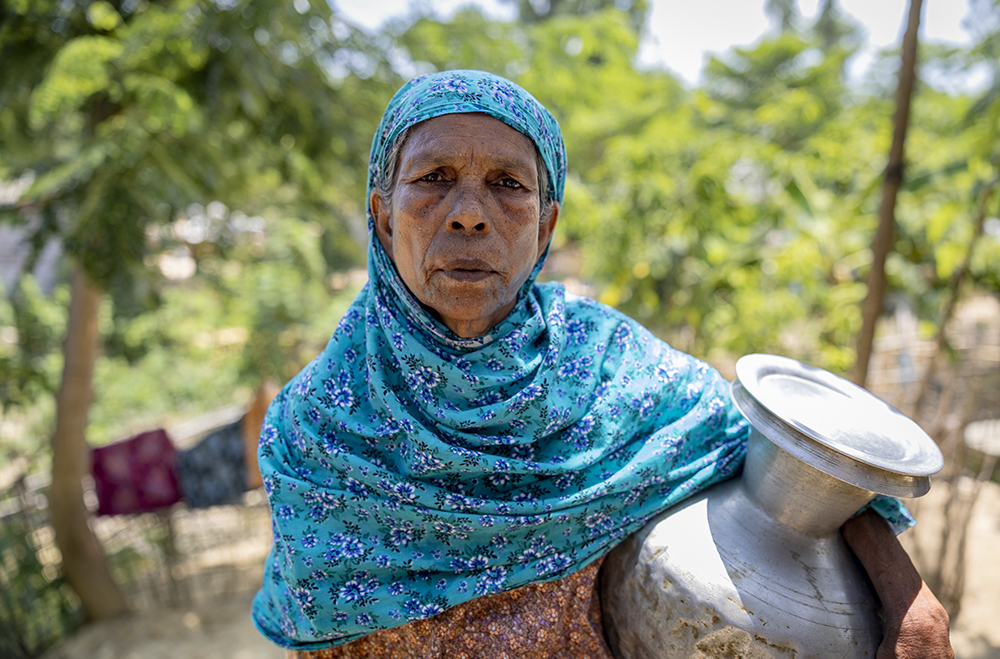The kitchen table is not just a place where we sit to eat. It’s a place where we come together to connect, share things, process the day’s events and talk about ideas. A good kitchen table can host it all. Whether mundane conversations about bins and dishes, impassioned debates about democracy and human rights, or next renditions of treasured family tales – anything goes. Anything, even reflections on our most deeply held values and beliefs.
It’s this possibility of gathering ordinary people to speak and listen and think together – to practice democracy at household and community levels – that makes the Kitchen Table Conversation model so effective and now, an important part of the National Aboriginal and Torres Strait Islander Catholic Council’s One Journey, Together. project.

Starting a conversation
Hosting a Kitchen Table Conversation (KTC) is a great opportunity to bring your family, friendship circle or parish community together to listen, learn and reflect on the Aboriginal and Torres Strait Islander Voice to Parliament referendum that will be held in the coming months. As the One Journey, Together. Voice to Parliament Kitchen Table Conversation Guide suggests, your KTC can be done as one small group, or you can bring together a very large group and then break into smaller groups throughout the event if you prefer. Whatever your approach, the key is to start a conversation.
Yes or No?
The Australian Electoral Commission has now published pamphlets for the Yes and No cases. Each document outlines arguments for or against changing the Constitution to recognise Australia’s First Peoples and establish a Voice to Parliament so that Aboriginal and Torres Strait Islander Peoples can advise the government and parliament on matters that affect them.
One Journey, Together. features the voices and perspectives of First Nations Catholics and other leading Catholics, as well as statements from a wide range of Catholic organisations. It also offers a range of activities and resources (including for youth) designed to educate and inform the Catholic community at “this pivotal moment in Australia’s history”.
How faith can help
Our Christian faith brings us into communion with each other. Informed by Catholic Social Teachings (CSTs), our shared tradition can guide our thinking together about the Voice: “Grounded in the intrinsic dignity of every person, these teachings advocate for solidarity, subsidiarity and the pursuit of the common good, among other things”. They are also at the heart of Caritas Australia’s work.
Caritas Australia’s Approach
At Caritas Australia, “We believe in subsidiarity: that the people best placed to make decisions are those who will be most affected by them. Australia has a long history of making decisions for First Australian communities, rather than upholding these communities’ rights to decide for themselves. This history has had deep and long-lasting effects on First Australians, as well as Australia as a whole. There are glaring inequalities between the general population and those identifying as Aboriginal and/or Torres Strait Islander people".
How to host a KTC
NATSICC’s Kitchen Table Conversation Guide has all the information you need to host a Kitchen Table Conversation with your family, friends or parish community and join us on this one journey, together.

















